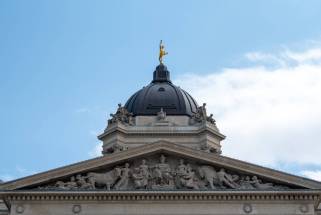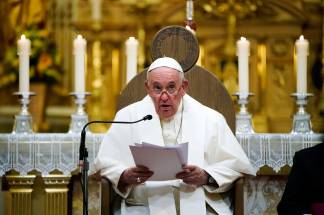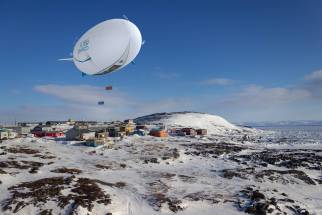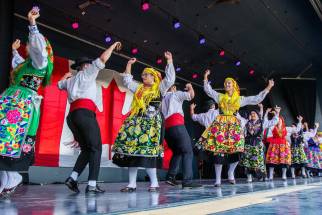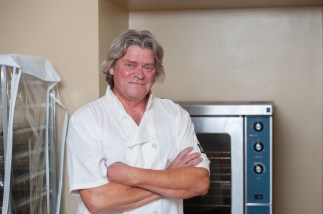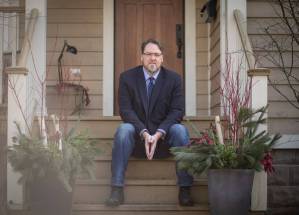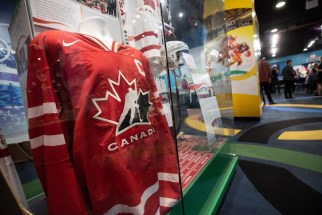Indigenous peoples rise as 500 years of Catholic doctrine falls
Read this article for free:
or
Already have an account? Log in here »
To continue reading, please subscribe:
Monthly Digital Subscription
$0 for the first 4 weeks*
- Enjoy unlimited reading on winnipegfreepress.com
- Read the E-Edition, our digital replica newspaper
- Access News Break, our award-winning app
- Play interactive puzzles
*No charge for 4 weeks then price increases to the regular rate of $19.00 plus GST every four weeks. Offer available to new and qualified returning subscribers only. Cancel any time.
Monthly Digital Subscription
$4.75/week*
- Enjoy unlimited reading on winnipegfreepress.com
- Read the E-Edition, our digital replica newspaper
- Access News Break, our award-winning app
- Play interactive puzzles
*Billed as $19 plus GST every four weeks. Cancel any time.
To continue reading, please subscribe:
Add Free Press access to your Brandon Sun subscription for only an additional
$1 for the first 4 weeks*
*Your next subscription payment will increase by $1.00 and you will be charged $16.99 plus GST for four weeks. After four weeks, your payment will increase to $23.99 plus GST every four weeks.
Read unlimited articles for free today:
or
Already have an account? Log in here »
Hey there, time traveller!
This article was published 29/07/2022 (1229 days ago), so information in it may no longer be current.
In 1550, at the height of Spanish attempts to colonize the Americas, a trial took place among Catholic Church leaders.
In what become known as the Valladolid debate (after the city it took place in) the question was: are Indigenous peoples human?
At the time, a crisis had emerged in the Catholic Church.
For decades, popes had issued decrees (often called the Doctrine of Discovery) declaring lands inhabited by non-Christians should be claimed by Christians and, in the case of the Americas, Indigenous peoples must be converted to Catholicism.
Mostly, Spanish explorers listened to the first part and not the second, invading what is now Central America and the United States, using brutal and murderous force against Indigenous nations.
For the first time, the Valladolid debate was an attempt by the church to settle, once and for all, whether Indigenous peoples had basic human rights or should be destroyed.
“This is the way: to build relationships of fraternity with everyone, with Indigenous brothers and sisters, with every sister and brother we meet, because the presence of God is reflected in each of their faces.”-Pope Francis
In the end, Catholic leaders couldn’t come to a decision — an ambivalent choice that enabled violence, evangelization and genocide to continue for 500 years.
On Thursday, 45 popes later, one decided to provide part of an answer.
Speaking in Quebec to Canada’s bishops and priests on how Catholicism will survive, Pope Francis asked: “How about our relationships with those who are not ‘one of our own,’ with those who do not believe, with those who have different traditions and customs?”
Then, the Pope became specific.
“This is the way: to build relationships of fraternity with everyone, with Indigenous brothers and sisters, with every sister and brother we meet, because the presence of God is reflected in each of their faces.”
In a simple statement that rebuked over 500 years of Catholic doctrine, the Pope had pronounced Indigenous cultures and traditions are valuable, worthy on their own terms, and represent “the presence of God.”
The impact of Pope Francis’ new doctrine is nothing short of a game changer for Catholicism in Canada.
Bishops and priests must now “build relationships of fraternity” with Indigenous ways, instead of forcing us to give up our songs, stories, and traditions.
Because, finally, after 500 years, the church finally recognizes us as human.
Forgive me if I don’t give the Pope a standing ovation — as the priests and bishops did — but I do recognize a step when I see one.
The impact of Pope Francis’ new doctrine is nothing short of a game-changer for Catholicism in Canada (and, I guess, the world).
It means Indigenous languages, cultures and ceremonies must be recognized as legitimate spiritual expressions by every member of the Catholic Church.
It means any effort to destroy Indigenous traditions is to attack the “presence of God.”
“Never again can the Christian community allow itself to be infected by the idea that one culture is superior to others or that it is legitimate to employ ways of coercing others.”-Pope Francis
It means the purpose of the Canadian residential school system — to eradicate “the Indian in the child,” to use an infamous phrase — was invalid in the eyes of this pope.
“Thinking about the process of healing and reconciliation with our Indigenous brothers and sisters,” the Pope pronounced, “never again can the Christian community allow itself to be infected by the idea that one culture is superior to others or that it is legitimate to employ ways of coercing others.”
There has been much to criticize about Pope Francis’ tour of Canada this week.
For example, his failure to take institutional responsibility for the Catholic Church over residential schools and his claim the system’s assimilationist agenda and instances of physical, sexual abuse were the result of the Canadian government or a “few members” is, frankly, unacceptable.
He also failed all week to address the millions of dollars the Catholic Church owes to residential school survivors, the failure to provide documents or return sacred items in Catholic archives, or offer to help return stolen Indigenous lands held by Canadian Catholic institutions.
He also failed to address that little part of the Doctrine of Discovery, where Indigenous lands could be claimed by Christians because Indigenous peoples were less than human.
Describing the doctrine as meaningless is different than rejecting it outright.
To be fair, even if the Pope did revoke the entire Doctrine of Discovery when he was in Alberta, Quebec or Nunavut, it might have had little impact.
Catholics have already pronounced it is no longer valid. Leaders from the Vatican said so much at the United Nations in 2010, and the Canadian Conference of Bishops officially repudiated it in 2016.
Still, describing the doctrine as meaningless is different than rejecting it outright.
If the Pope had gone as far as he did in revoking parts of it by recognizing Indigenous humanity Thursday, he would have shown leadership beyond the Catholic Church.
He would have called for change in the government of Canada, a country that still relies on the doctrine to claim land.
He would have called for truth, love, and justice.
He would have called for all things the Catholic Church claims it stands for.
niigaan.sinclair@freepress.mb.ca

Niigaan Sinclair is Anishinaabe and is a columnist at the Winnipeg Free Press.
Our newsroom depends on a growing audience of readers to power our journalism. If you are not a paid reader, please consider becoming a subscriber.
Our newsroom depends on its audience of readers to power our journalism. Thank you for your support.





